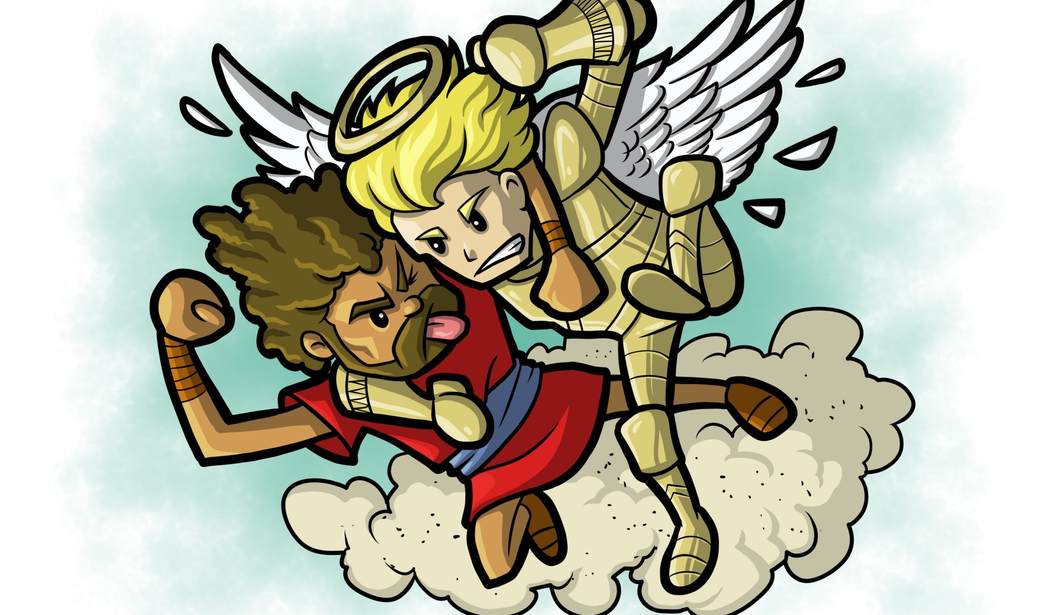Continuing a plan to get through the entire Bible in a year, follow as I journal through the reading. I have chosen a straightforward approach that begins in Genesis and ends in Revelation. This will not be an in-depth study or a comprehensive commentary. There are plenty of sources for such material. This is stage -one Bible reading, taking the text at face value and sharing impressions.
Today’s reading comes from the book of Genesis, chapters 32 through 24, chronicling the tense reunion of Jacob and Esau, plus the defilement of Dinah. Some impressions from the text:
- When Jacob hears that his estranged brother Esau approaches with four-hundred men, he worries that they’ve come to attack.
- Jacob wrestles with this fear. On the one hand, he expresses faith in God’s promise to protect him. He prays, “Please deliver me from the hand of my brother, from the hand of Esau, for I fear him, that he may come and attack me, the mothers with the children. But you said, ‘I will surely do you good, and make your offspring as the sand of the sea, which cannot be numbered for multitude.’” On the other hand, he takes measures to protect himself and appease Esau, splitting into two camps so that one may escape if the other falls, and sending gifts ahead to Esau. He seems to believe God, but still seeks to do something about his predicament.
- Jacob then literally wrestles with God. I confess to having never grasped the theological significance of this event. It is here that Jacob is renamed Israel, “for you have striven with God and with men, and have prevailed.” It’s noteworthy that Jacob has “seen God face to face, and yet… been delivered.” Multiple passages elsewhere in scripture state that seeing God’s face would kill sinful men. It seems that, if nothing else, this incident attests to Jacob’s salvation.
- When Jacob and Esau reunite, it is pleasant despite Jacob’s fears. Esau embraces him as a brother, and past quarrels seem forgotten. The best deliverance from any enemy is reconciliation.
- The events surrounding the defilement of Dinah seem to be another example of actions which, while recorded in the Bible, are not necessarily condoned by God. It begins with her rape at the hands of Shechem, who then claims to love her and seeks her for his wife. Dinah’s brothers deal deceitfully with Shechem and his father Hamor (and apparently with their own father Jacob as well), claiming they will accept an exchange of wives if the Hivite males get circumcised. The Hivites agree, and are slain by Dinah’s brothers while still sore and recovering from circumcision. This frustrates Jacob, who sought a peaceful resolution and now fears retribution from other surrounding peoples.
Return soon as we continue our year-long journey through the text of the Bible.
Catch up on the previous entries:
In the Beginning: The Creation, His Rest, Our Fall – Genesis 1-3
An End of All Flesh: Abel’s Murder, Man’s Corruption, and the Great Flood – Genesis 4-7
Noah’s Flood Led to History’s First Post-Apocalyptic Society – Genesis 8-11
Abram Believed: The Pre-Gospel Gospel – Genesis 12-15
Abraham, the Father of Faith, Also Harbored Doubt – Genesis 16-18
Twin Cities of Sin: The Judgment of Sodom and Gomorrah – Genesis 19-21
Was Abraham a Psychotic Child Murderer? – Genesis 22-24
Isaac Follows in His Father’s Footsteps – Genesis 25 and 26
Deception and Fraud, Not of God, But Used for His Purpose – Genesis 27-29
Jacob’s Dysfunctional Polygamous Family – Genesis 30 and 31









Join the conversation as a VIP Member